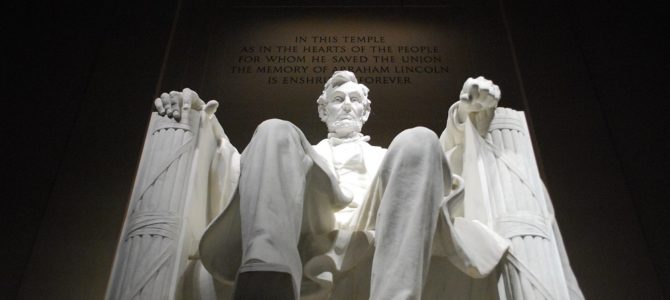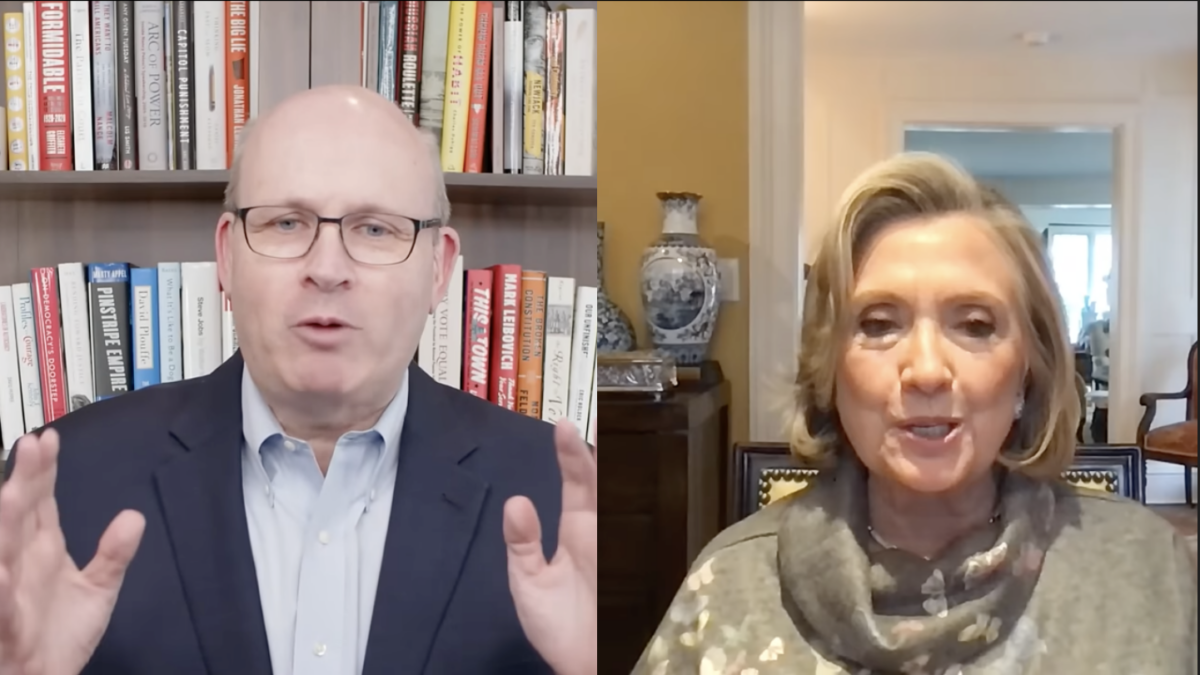
Words matter, and speeches can have profound effects. Over the past weeks and months, words have increased the political polarization and partisan rancor sweeping our country. But words—both from the present and the past—can and should provide a path to healing.
Whatever Joe Biden does or does not say in his inaugural address at the Capitol on Wednesday, he will struggle to match the profundity of words etched in stone 23 blocks to his west. There, on the north wall of a marble temple designed by Henry Bacon, perhaps the Great Emancipator’s greatest speech gives Americans an example to follow.
God’s Role in History
On March 4, 1865, Abraham Lincoln stood on the East Front of the Capitol—the same steps that an angry mob of rioters used to ransack the building a fortnight ago—to deliver his second inaugural address. As much a sermon as a speech, his remarks went directly to the role that divine Providence plays in the nation’s history:
Fondly do we hope, fervently do we pray, that this mighty scourge of war may speedily pass away. Yet, if God wills that it continue until all the wealth piled by the bondsman’s two hundred and fifty years of unrequited toil shall be sunk, and until every drop of blood drawn with the lash shall be paid by another drawn with the sword, as was said three thousand years ago, so still must it be said: ‘The judgments of the Lord are true and righteous altogether.’
A century and a half later, the Civil War still remains the most cataclysmic event in our nation’s history. Those four years saw as many as 3 percent of the nation’s population—equivalent to roughly 10 million individuals today—dead, a generation of men maimed and wounded, and vast swathes of the South destroyed. The war years saw Lincoln’s son Willie die and would cost him his own life, six weeks after his second inaugural address.
But just as Lincoln did not flinch from the war’s brutal consequences, thinking it a penance for the scourge of slavery, neither did he presuppose that God had foreordained a victory for the Union:
Both [North and South] read the same Bible and pray to the same God, and each invokes His aid against the other….The prayers of both could not be answered. That of neither has been answered fully. The Almighty has His own purposes.
While the Confederacy adopted as its motto the Latin phrase Deo vindice—“God will vindicate us”—Lincoln took a humbler tone. Following his second inaugural address, he thought the public would not like the speech, telling a journalist that “men are not flattered by being shown that there has been a difference of purpose between the Almighty and them.”
Religiously Tinged Political Fervor
Lincoln’s words provide guidance and caution to Americans today, as both sides of the ideological spectrum have assumed sacred language to describe secular politics. Critics have pointed out the way “wokeness” has become its own religion, or even a cult—one in which an individual’s denial of “systemic racism” only proves that person’s “white fragility,” thereby demonstrating the racist nature of American society.
The woke “religion” and its attendant consequences—whether from corporate wokeness, media messaging, or attempts to “cancel” individuals who disagree with the new secular creed—has unsurprisingly sparked a backlash. Conservatives, worried by encroachments on their political and religious beliefs, have increasingly sought political responses to the progressive left’s attempts to marginalize them.
The fact that nearly half of church-going Protestants interviewed in March considered Donald Trump chosen by God suggests the intermingling of religion with politics among both the left and the right. But to each side of the political divide, Lincoln’s wisdom provides the best path forward: “My concern is not whether God is on our side; my greatest concern is to be on God’s side, for God is always right.”
Historical Perspective
However aggrieved present-day partisans may feel, and however justified those complaints, virtually no Americans face the level of persecution faced by the first Christians under the Roman Empire, nor the unrequited toil and blood drawn with the lash that bondsmen still faced at the time of Lincoln’s address. The breadth of history can provide a broader perspective that can soften rising tensions—one that generations today should seek.
The Psalmist provided other words of wisdom, instructing “put not your trust in princes, in a son of man, in whom there is no salvation.” All Americans would benefit from the counsel of Lincoln and the Psalmist, and separate the City of God from the City of Man. The resulting humility would provide the healing balm our nation so desperately needs.









